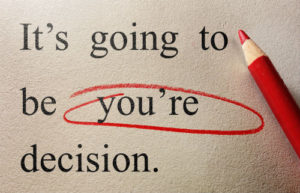“Am I good enough?” I hear that question from highly successful and qualified executives more than you’d think.
Why? Imposter syndrome.
In the grand theater of life, imposter syndrome is an uninvited guest that often sneaks into the front row, casting shadows on our achievements and robbing us of the applause we deserve. If you’ve ever doubted your own success, felt undeserving of your accomplishments, or lived in constant fear of being exposed as a fraud, then you’re not alone. I suffer from it sometimes as well.
In the high-stakes arena of trailblazing executives, imposter syndrome can loom even larger. As this is something we see more than you’d think, I’ll unravel the enigma of imposter syndrome, especially for those navigating the executive landscape. Without any further ado, let’s pull back the curtains and let the show begin.
Understanding Imposter Syndrome
Before fully diving into tips on how to deal with imposter syndrome, let’s break down what it’s like to suffer from it. Imagine achieving monumental feats, only to hear a voice in your head whisper, “You don’t belong here.”
Welcome to the world of imposter syndrome.
This psychological phenomenon affects high-achievers, making them question their competence despite concrete evidence of success. It’s like having a persistent internal critic who scoffs at accomplishments, attributing them to luck rather than capability. This syndrome thrives on self-doubt, undermining confidence and shattering self-worth.
For executives, imposter syndrome can be particularly insidious. It latches onto the immense responsibilities and expectations that come with executive roles, casting doubt on leadership capabilities and strategic decisions. Basically, high achievers are usually continually striving to learn and grow. Therefore, they are fully aware of what they don’t know. On the flip side, underachievers are less likely to suffer from imposter syndrome because they are content in their knowledge – they don’t know what they don’t know.
Recognizing the Signs of Imposter Syndrome
Imposter Syndrome has a knack for masquerading as humility. Humility is good though, right? The difference between humility and imposter syndrome is: humility is based on an accurate assessment of one’s own incapabilities. Whereas imposter syndrome stems from a feeling of inadequacy in spite of proof otherwise. It thrives on self-effacement and can lead to self-sabotage. Signs can range from overworking to compensate for perceived inadequacies to downplaying accomplishments to colleagues, setting unrealistic goals, and even burnout. In the senior executive world, it might also manifest as a reluctance to step into leadership roles due to a nagging fear of not measuring up.
Strategies to Overcome Imposter Syndrome
Does any of this sound familiar? Have you heard that nagging voice telling you that you’re not good enough and don’t belong? You’re certainly not alone. Let’s jump into some tips on what you can do to quiet that inner monologue.
Cultivating Self-Awareness and Reflection
Peeling away the layers of imposter syndrome begins with self-awareness. It’s about acknowledging your feelings of self-doubt and scrutinizing their origins. An effective technique is journaling, where you chronicle your achievements (both professionally and personally), no matter how insignificant they might seem. Reflecting on your journey helps build a solid foundation of self-belief. This will also help you develop a positive mindset. Challenge negative self-talk by replacing it with positive affirmations. We all experience setbacks. Don’t let imposter syndrome tell you that yours proves your inadequacies.
Embracing Achievements and Positive Feedback
Take a pause and bask in the glory of your accomplishments. Train yourself to accept compliments and positive feedback without brushing them aside. They’re not random nods; they’re testaments to your hard work and expertise. Owning your achievements is a giant stride towards silencing the imposter syndrome’s voice. It’s OK to be proud of yourself. It is your right.
Setting Realistic Goals and Expectations
Executives often bear the weight of unattainable expectations, both real and perceived. By setting realistic, achievable goals, you can defuse the ticking bomb of self-doubt. Aim high, but don’t set yourself up for failure by pursuing perfection.
Seeking Mentorship and Professional Support
Mentorship is a powerful antidote to imposter syndrome. Engage with mentors who have danced with self-doubt and emerged victorious. Their insights and guidance can provide much-needed perspective. They’ve navigated the treacherous waters of executive careers and can offer a reassuring hand.
Embracing Continuous Learning
Believe it or not, imposter syndrome thrives on stagnation. It says to you, “See? I told you that you weren’t [good, smart, skilled] enough for that promotion.” Combat that voice by embracing continuous learning and skill development. Stay updated with industry trends and advancements. By acquiring new skills, you not only enhance your expertise but also disrupt the imposter syndrome’s narrative.
Celebrating Progress and Success
Amidst the whirlwind of executive life, pause to acknowledge your journey! Celebrate your milestones, no matter how incremental. Each accomplishment is a brushstroke on your canvas of success. By celebrating progress, you silence the self-doubting whispers. So pop that champagne, have that nice dinner, or do whatever you do to treat yourself. You deserve it!
Imposter syndrome might be a formidable opponent, but it’s not invincible. By understanding its mechanics, recognizing its signs, and employing proactive strategies, executives can vanquish its grip. If it all feels too overwhelming, please feel free to reach out. I’ve been there! But for now, remember this. Mastering imposter syndrome isn’t just about personal triumph – it’s about sculpting a confident, unapologetic professional executive identity. Through introspection, positivity, and professional support, you can stride into your executive role with head held high, leaving the shadows of self-doubt behind.








